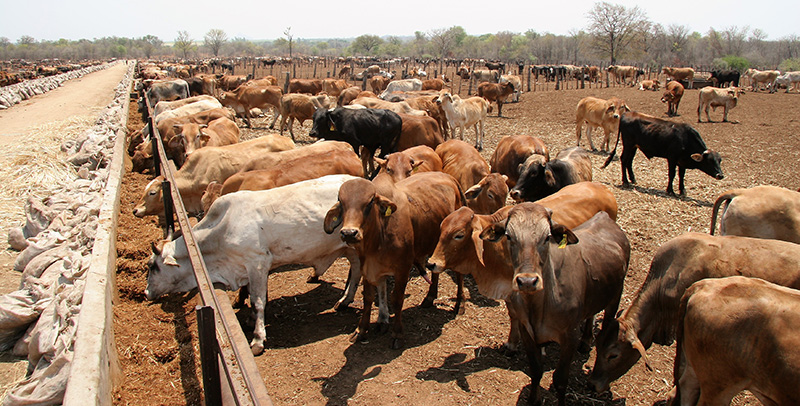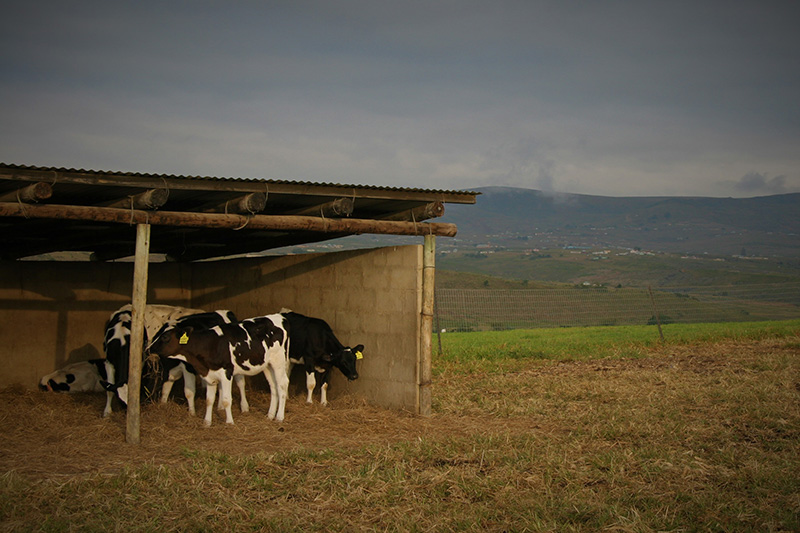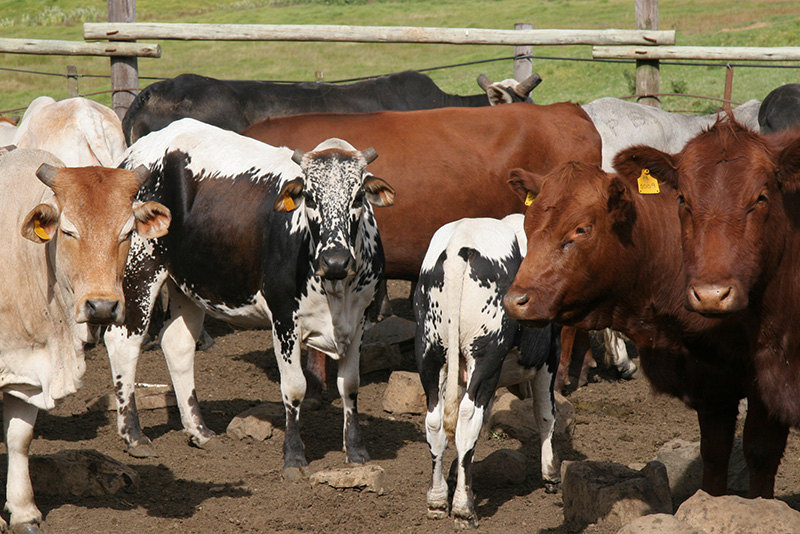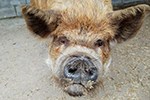RVC researchers lead vital study on global food systems
Researchers from the Royal Veterinary College (RVC) have led an important study as part of the Wellcome Trust funded global programme Sustainable and Healthy Food Systems (SHEFS), highlighting the need for a holistic approach to understanding food systems if significant progress is to be made in producing healthy and nutritious food in an environmentally sustainable way to all people at all times.
Two researchers from the RVC, Dr Barbara Häsler, Senior Lecturer in Agrihealth, and Mr Kevin Queenan, Research Assistant in SHEFS, joined colleagues from the School of Oriental and African Studies in London, and the University of KwaZulu-Natal in Pietermaritzburg in South Africa, to investigate the complex systems that underpin the production, distribution and consumption of livestock-derived food (LDF) in South Africa.

Highlighting the complexity of the system, the existing problems and suggesting potential solutions, the researchers created an overview of the entire South African LDF system for the benefit of policymakers and stakeholders. The study also demonstrated the use of conceptual system dynamics modelling as a tool for decision-makers to use when considering food system recommendations, associated with nutrition and health, environmentally sustainable food production, food security, and equitable access to food.
The results determined that the LDF system in South Africa is incredibly complex and undergoing dynamic change, driven in part by a rising population and increasing per capita demand. The study also found that the country’s historic roots continue to influence the dominance of industrial-sized producers, large-scale supermarkets and international fast-food companies at the exclusion of others.

In addressing this imbalance, the researchers found that Government support of emerging commercial producers is challenged by land access and a shortage of skills that are needed to meet high standards of the formal value chain. Local production is also challenged by cheaper imports (as part of complex trade deals), increasingly frequent droughts and climate change. These findings demonstrate the importance of a wider contextual analysis when considering the debate around food security, nutrition, health, and sustainable livestock production. The study has the potential to guide policy toward more integrated and durable solutions, highlighting possible unintended consequences, and mitigating the risk of system destabilisation that may accompany the deep structural change required.
Dr Barbara Häsler, Senior Lecturer in Agrihealth at the RVC, said: “The increasing global population, combined with the climate change crisis and the risk of foodborne illness, presents a stark challenge to all those committed to ensuring there is a global provision of nutritious and healthy food for everyone that is produced, distributed and consumed within planetary boundaries.
“It was a pleasure to be part of this transdisciplinary team to conduct this important research, which highlights the complexity of the myriad networks which underpin the provision of livestock-derived food, hopefully demonstrating the need for a systems thinking when tackling food system challenges. Projects like this truly emphasise the need for a One Health approach to food and sustainability, whichrecognises the interconnections between people, animals, plants and the shared environment.”

Research reference
Queenan , K., Sobratee, N., Davids, R., Mabhaudhi, T., Chimonyo, M., Slotow, R., Shankar, B., & Häsler, B. (2020). A Systems Analysis and Conceptual System Dynamics Model of the Livestock-derived Food System in South Africa: A Tool for Policy Guidance. Journal of Agriculture, Food Systems, and Community Development, 9(4), 1-24. https://doi.org/10.5304/jafscd.2020.094.021
Notes to Editors
For more information please contact:
- Jasmin De Vivo (Jasmin.DeVivo@plmr.co.uk or rvc@plmr.co.uk
- Press Line: 0800 368 9520
About the RVC
- The Royal Veterinary College (RVC) is the UK's largest and longest established independent veterinary school and is a Member Institution of the University of London. It was the first in the world to hold full accreditation from AVMA, EAEVE, RCVS and AVBC.
- The RVC is the top veterinary school in the UK and Europe, and ranked as the world’s second highest veterinary school in the QS World University Rankings by subject, 2020.
- The RVC offers undergraduate and postgraduate programmes in veterinary medicine, veterinary nursing and biological sciences.
- In 2017, the RVC received a Gold award from the Teaching Excellence Framework (TEF) – the highest rating a university can receive.
- A research led institution with 79% of its research rated as internationally excellent or world class in the Research Excellence Framework 2014.
- The RVC provides animal owners and the veterinary profession with access to expert veterinary care and advice through its teaching hospitals and first opinion practices in London and Hertfordshire.
You may also be interested in:
-
New research from the RVC highlights pandemic risks posed by evolving swine flu viruses in Europe
A new study led by the Royal Veterinary College (RVC) has revealed significant genetic and …

